Argan Cooperatives Are the Future of Morocco
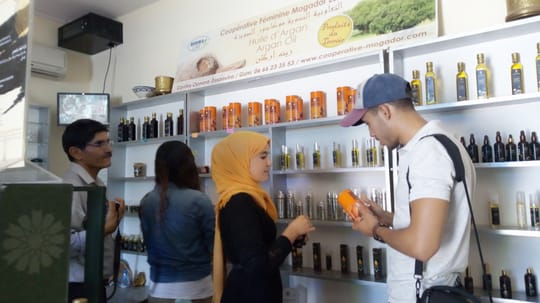
by Hajiba Boumasmar
HAF Intern
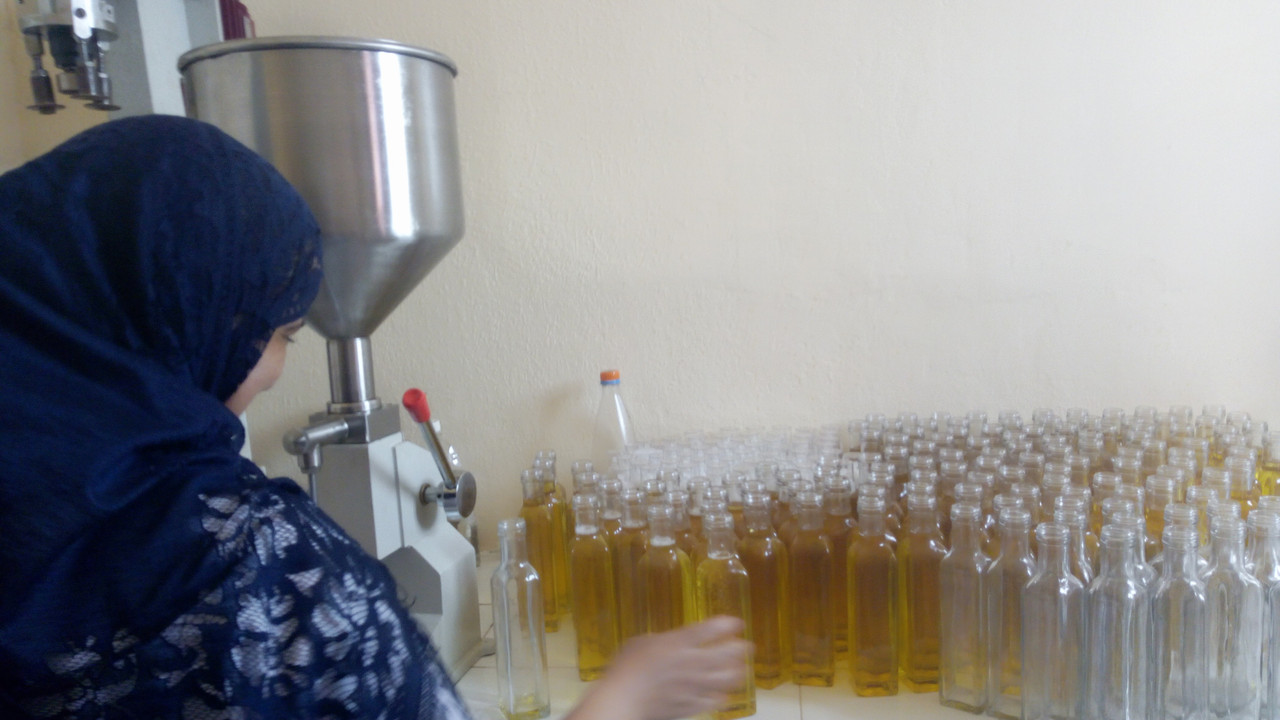
On September 28, 2019, we visited both the Argan Majji Cooperative and the Agricultural Cooperative Argan Mogador for Argan Oil Extraction with HAF Project Manager Errachid Montassir, HAF Project Assistant Hassan Ait Ouatouch, and USAID Farmer to Farmer Officer Stephanie Frankenza.
Argan Majji Cooperative Visit
The Argan Majji cooperative was established in 2004. The National Initiative for Human Development contributed 500,000 Moroccan dirhams to its rehabilitation through a larger project aimed at improving the economic and social situation of Moroccan cooperatives. This project improved the production and marketing conditions of argan oil.
Last year, the High Atlas Foundation also contributed to the rehabilitation and prosperity of the Majji cooperative by distributing approximately 1,070 seedlings of argan to its members and local people who own and work the land.
There, I had the chance to witness the steps involved in argan oil preparation, from the mash of the bean to the extraction of oil, and I learned how the pulp is used as feed for cows.
In an interview, one of the officials explained to us that the marketing of products is still weak. This is a major obstacle to increasing revenue. The women of the cooperative aspire to continue to set up shop at artisanal fairs and other markets to display and sell their products.
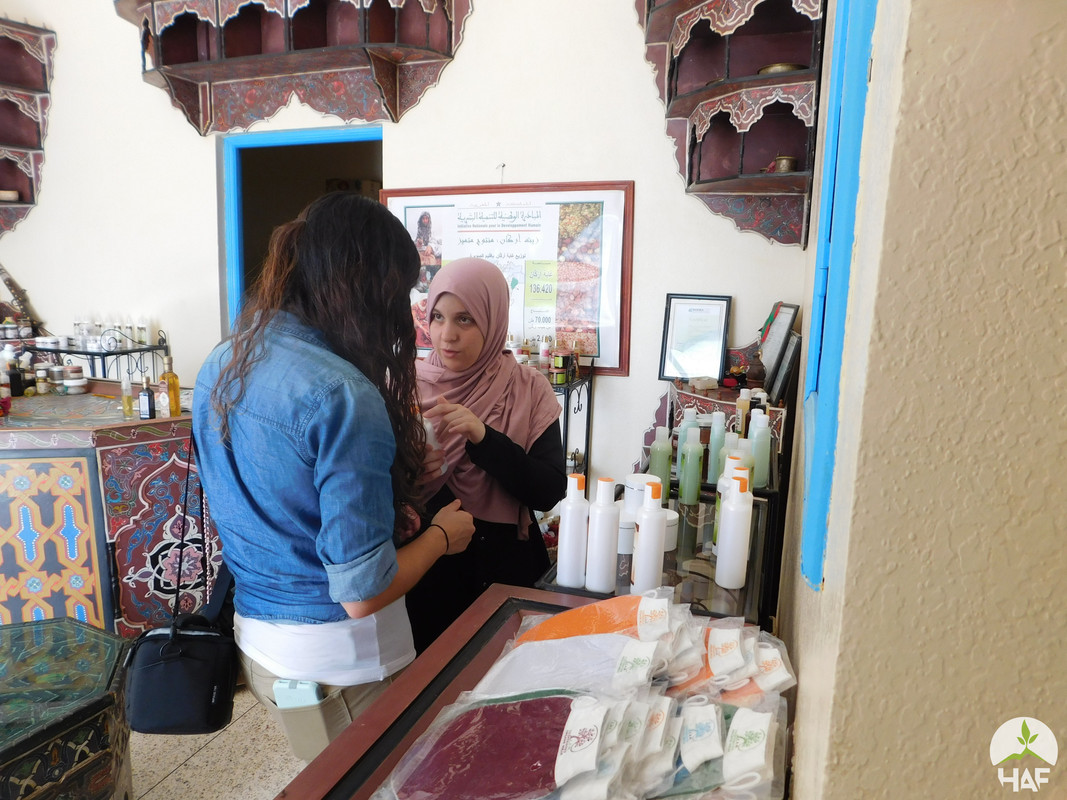
Argan Mogador for Argan Oil Extraction Visit
That day, we also visited the agricultural cooperative Argan Mogador for Argan Oil Extraction, which was founded in 2007 and is one of the most successful argan oil cooperatives. HAF also distributed 1,070 argan seedlings to this cooperative and the people of the region with land to benefit.
The cooperative’s vision for the future is not limited to marketing their products. They also want to begin preparing argan cosmetics like shampoo, soap, and skin ointments on site instead of selling their raw materials to cosmetics laboratories in big cities. To do this, they need to be prepared to meet health and safety criteria and the women who work at the cooperative will need training courses in the preparation of cosmetics–how to manufacture them and how to work with specialized equipment.
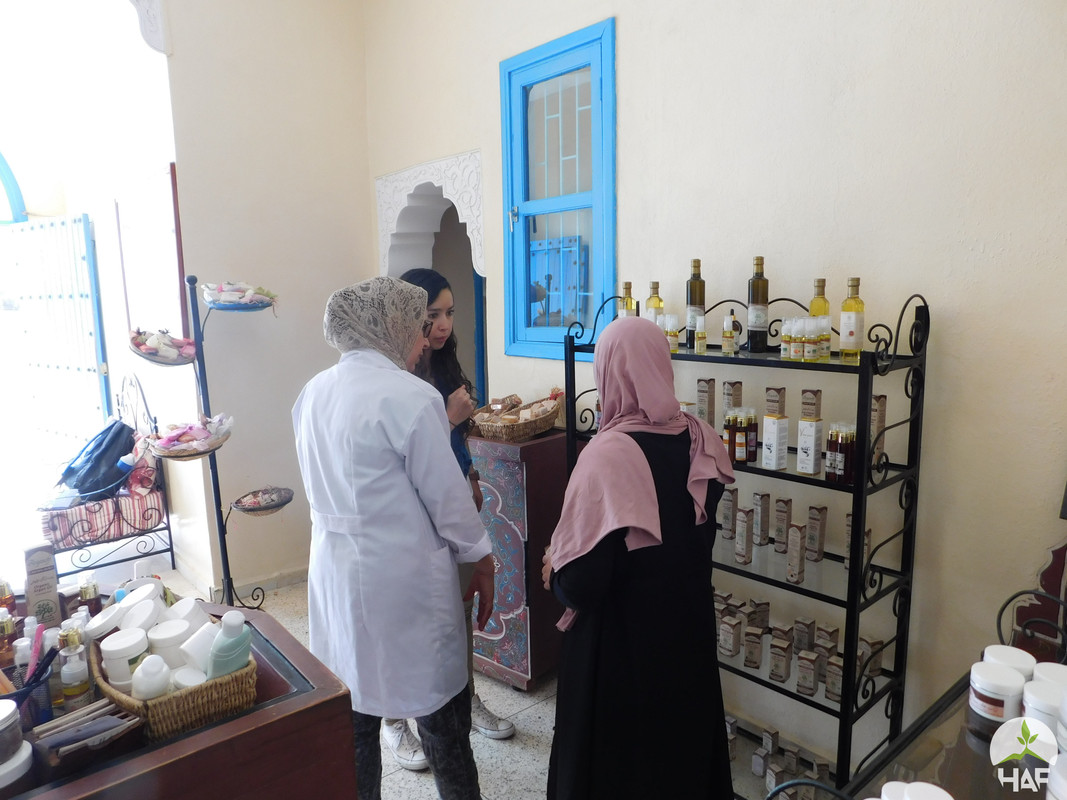
Farmer to Farmer Program Involvement
Both cooperatives will be better able to solve their problems and achieve their goals through the Farmer to Farmer Program, a four-year USAID-HAF partnership, which seeks to better understand the needs of cooperatives in order for them to grow and thrive. Through the program, American volunteer agricultural experts will assist the Argan Majji Cooperative in e-marketing and other major market strategies. It will train the women of the Mogador Cooperative in cosmetics manufacturing.
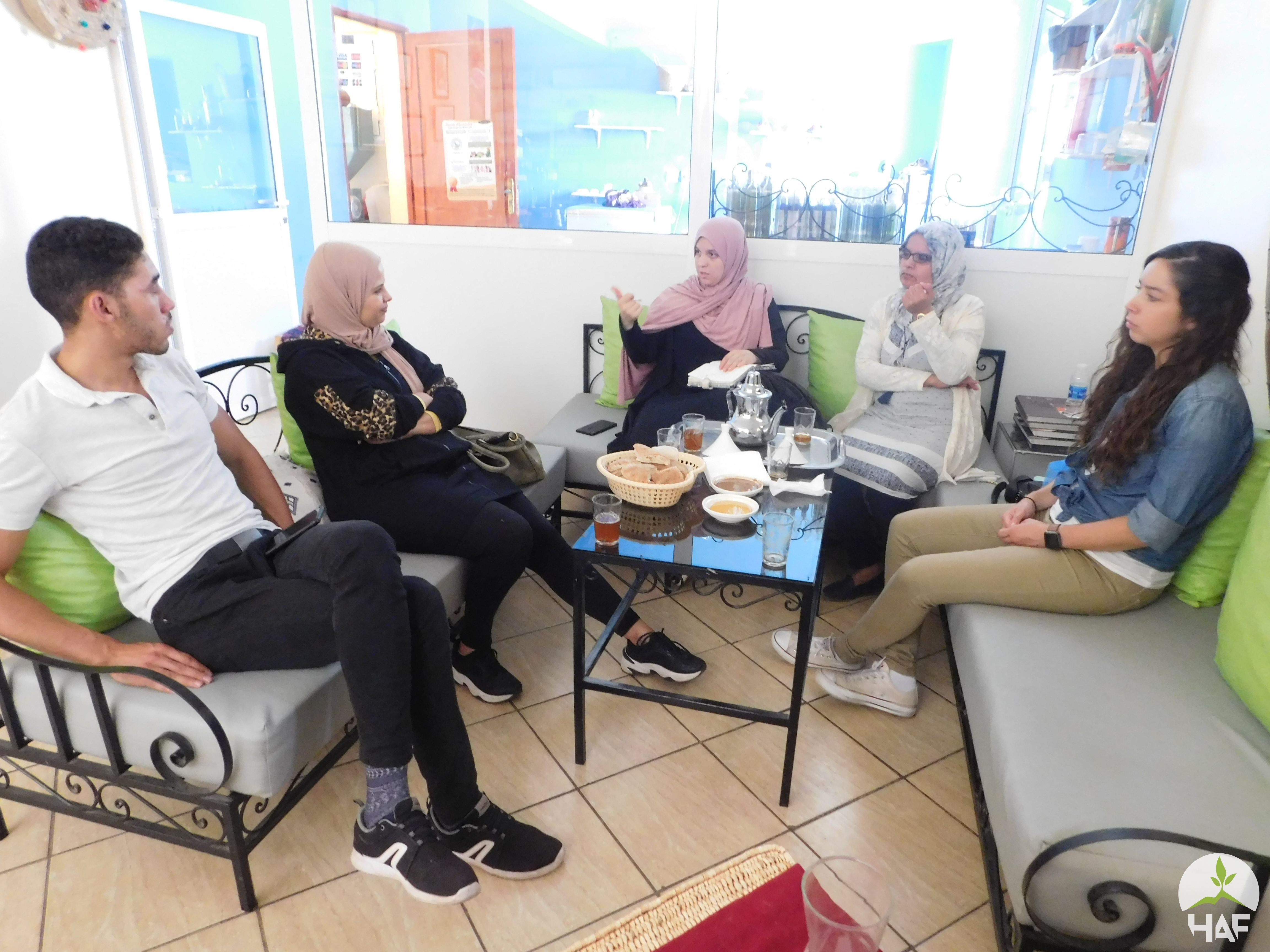
Conclusions
It was an honor to visit these two cooperatives who, despite the obstacles they’ve encountered, have continued to work and produce argan products for more than 10 years and continue to set their sights on bigger goals.
I was also very impressed by the young people working on these projects. Their work and ideas are refined and competent, and I was fortunate to sit down and talk to them. This has given me a greater impetus and motivation to develop my skills to one day be an inspiring young woman able to put her mark and work on projects related to the environment and the sustainable development of agricultural resources.
HAF would also like to thank FRÉ Skin Care for their support of argan tree planting and local cooperatives in Morocco.